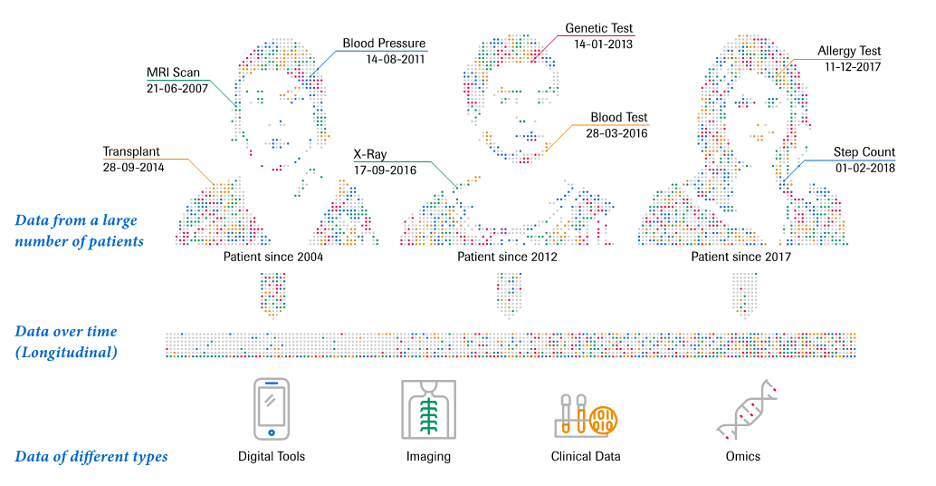Analytical use of data yields findings that have been unknown in many areas. According to the latest estimates, a huge amount of data related to healthcare is generated annually, namely about a trillion gigabytes of data. Thanks to the advent of advanced analytical information technology systems, it will be possible to more and more intensively interconnect large amounts of data - which will help to bring more light to unknown areas of complex human biology.
The digital approach to health is gradually transforming healthcare. Technologies aimed at monitoring and analyzing the patient's health help to decide on new options for disease prevention, early diagnosis and control. The software that helps in diagnosis and treatment, in other words in clinical decision-making, can lead to more efficient and cost-effective healthcare.
Advances in digital technologies
Whether it's a software in the form of a medical device, clinical decision support, artificial intelligence systems or patient health monitoring applications - healthcare in the digital era is changing rapidly. The digital approach is also changing the attitude towards how doctors predict, monitor and decide on therapeutic approaches of diseases.
Pioneering technologies can identify the risk of a disease, predict how the disease may develop, and enable the right treatment decision from the outset. In the future software solutions that make these technologies work will become an integral part of the entire human health-illness continuum, enabling physicians to target the treatment more accurately. Digital technologies help to gain control over chronic conditions and also monitor the progress of treatment. Thanks to the possibilities offered by technologies, we can analyze and connect data from patients, clinical research, but also data from the latest scientific findings worldwide. Healthcare thus reaches a higher level.

What data connects personalized healthcare:
- electronic health records (data obtained from worldwide databases of treated patients)
- complex genomics (data obtained on the basis of genetic tests)
- digital health (data compared and analyzed over time - using the latest equipment)
- clinical trials, imaging methods and the use of artificial intelligence
Benefits beyond diagnosis
Healthcare softwares can inform about diagnosis and effective treatment decisions, guide treatment procedures, and can lead to more effective clinical practice. In addition, digital health (by monitoring health through technology - remote doctor, applications, connecting patients to various softwares) can provide people with real-time information to make better decisions about their own health, which also has the potential to improve outcomes while reducing healthcare costs. Both directly and indirectly, monitoring health through digital technologies will provide many benefits in the near future:
- Patient profile to support clinical decision-making: allows to consolidate a huge amount of data on a single platform to create a "360-degree" patient profile that physicians and other healthcare professionals can use to make faster and more accurate decisions.
- Patient involvement: Organizing data into user profiles helps patients and healthcare professionals make their own healthcare decisions.
- Engagement of people (including healthy ones): Healthcare applications enable users to make smarter decisions about everyday health, lifestyle and physical fitness.
- Use of databases: Digital technologies also give doctors and other healthcare professionals quick access to global databases providing information on disease states, treatment and innovation. This way they help to determine more effective treatment for patients more quickly.
- Artificial intelligence: the functions and possibilities of digital healthcare are constantly evolving. With artificial intelligence and algorithms, huge amounts of updated data can be used to help healthcare professionals make faster and more informed decisions about the most appropriate treatment.
[1] https://www.roche.com/about/priorities/personalised_healthcare/machine-learning.htm
[3] https://www.roche.com/about/business/diagnostics/value-of-digital-health.htm


